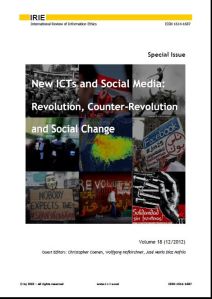 By Rainer E. Zimmermann (Munich University of Applied Sciences, Germany; Clark Hall – Cambridge, UK)
By Rainer E. Zimmermann (Munich University of Applied Sciences, Germany; Clark Hall – Cambridge, UK)
Abstract: Starting from a formal and abstract perspective, the concept of networks is introduced with a view to possible connections to other fields of the sciences and to practical applications. The structural hierarchy of forms is identified expressing the conceptual organization of our observable world. In the case of social networks, it can be shown that they exhibit a characteristic type of self-reference, a result of their special relationship to the conditions of the human modes of cognition and communication. As to a possible derivation of strategic attitudes, it can be shown that a re-vitalization of the ancient concept of kalokagathía could turn out to be helpful in tackling present everyday problems. Hence, choosing the perspective of an explicit network paradigm entails a new reconciliation of aesthetics and ethics, respectively, including multifarious implications for a suitable foundation of praxis within pertinent crisis management.
- Access article
- Presentation and video of the lecture held at the international event: Social Networks: from indignation to change (ethical, political and aesthetic aspects) 2012, León (Spain)



